“Forty years ago, Arlie Russell Hochschild wrote about emotional labor…” so starts the
insightful reflection by Seth Godin, a name synonymous with identifying and unraveling the
layers of modern professional life. Godin touches upon a vital yet often overlooked aspect of
work: emotional labor. While the industrial age celebrated the mechanical task-driven output,
today, the emotional quotient becomes an employer’s most significant competitive advantage.
But what does emotional labor mean for our veterans?
First, let’s understand what we mean by emotional labor. It’s the mental and emotional energy we
expend at our jobs, which isn’t necessarily part of our job descriptions. It’s the additional effort
that flight attendants make to greet every passenger with a genuine smile or the patience an
educator displays with a challenging student. It’s about showing up as a human, even if,
especially when, it’s the last thing we want to do.
Historically, as Godin pointed out, this kind of work was different from what the industrial
economy thrived on. There needed to be a clear divide between task-based work and emotional
efforts. Fast-forward to today, AI and mechanization are rapidly taking over task-oriented jobs,
turning the tables and making emotional labor paramount.
This brings us to our heroes – our veterans. Men and women who’ve dedicated their lives to
service, who’ve been through experiences most of us cannot even begin to comprehend, and who
bring a wealth of soft skills – resilience, discipline, teamwork, leadership – to the table. These
are the very attributes that encompass emotional labor.
Veterans: Pioneers of Emotional Labor in the Modern Workplace
Employers and leaders, in their journey to be the best, must recognize the importance of creating
environments that acknowledge and nurture emotional labor. This not only fosters a sense of
belonging and value for veterans but also propels organizations into becoming employers of
choice. When veterans feel emotionally secure, understood, and appreciated for their unique skill
sets, word spreads. The power of word-of-mouth in the veteran community is immense.
Companies that harness this stand to benefit immensely in recruitment, retention, and reputation.
Human Resource departments, traditionally built on rigid structures, need to adapt. A shift is
required from viewing soft skills as a bonus to recognizing them as critical hard skills. It’s these
human skills, these emotional labor attributes, which translate directly into productivity, quality,
safety, and even tangible metrics like decreased health insurance costs.
Programs like Max Fab Consulting’s Vet READY are pioneering this change. By focusing on all
these areas, they not only help companies recapture lost revenue but also enable them to deliver
quality through emotional labor. Seth Godin has rightly stated that our commitment to showing
up as humans is how we create value. Vet READY is taking the wisdom of the past and adapting
it for the future, transforming soft skills into hard skills that drive profit and productivity.
A Future Ready for Our Veterans
In celebrating and acknowledging the emotional labor our veterans bring, employers can do more
than thank them for their service. They can provide environments that genuinely resonate with
their unique experiences and skills.
It’s a two-way street: veterans get the emotional environment they deserve, and employers get
employees ready to deliver through emotional labor. It’s not just about adapting to the future; it’s
about shaping it.
For those looking to understand and incorporate this ethos into their organization truly, Vet
READY stands at the forefront. Emotional labor, as Godin puts it, has become a competitive
advantage. As we stride into the future, let’s make sure we’re doing so hand in hand with our
veterans, recognizing, valuing, and championing the emotional labor they bring to the table.
For more information on Vet READY and how to cultivate emotional environments tailored for
veterans, feel free to reach out. In the wise words of Seth Godin, sometimes the past needs to be
brought back to the future. Here’s our chance to do just that.
[Reference: Seth Godin’s reflections on Emotional Labor]


